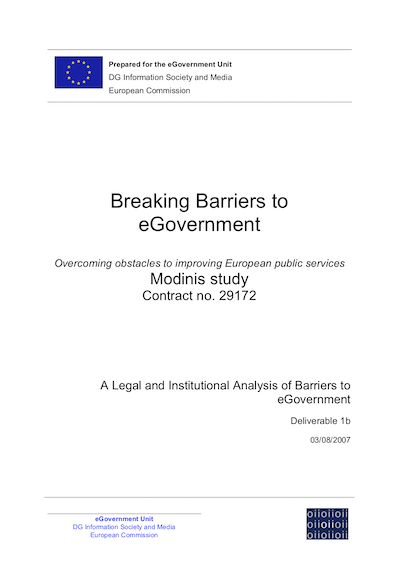
Professor Rebecca Eynon
Professor of Education, the Internet and Society
Rebecca Eynon's research focuses on learning and the Internet, and the links between digital and social exclusion.

There are numerous potential benefits of eGovernment, including greater efficiency, improved public services and enhanced engagement with citizens. Yet progress in eGovernment has been relatively slow, particularly when compared with other sectors such as eCommerce. The Breaking Barriers to eGovernment project is a three year study funded by the European Commission (EC) that aims to address this issue. The overall objective of the research is to identify and explore the barriers to eGovernment progression in Europe and suggest organizational, technical and legal solutions to overcome these obstacles.
Three key research reports have been produced by the project team: a legal and institutional analysis of barriers to eGovernment (deliverable 1b); a case study report (deliverable 2); and a solutions report (deliverable 3). This report is deliverable 1b, a legal and institutional analysis of barriers to eGovernment. The focus of this report is the identification and examination of seven key types of barrier and the main legal foundations that can significantly facilitate or block successful eGovernment outcomes.